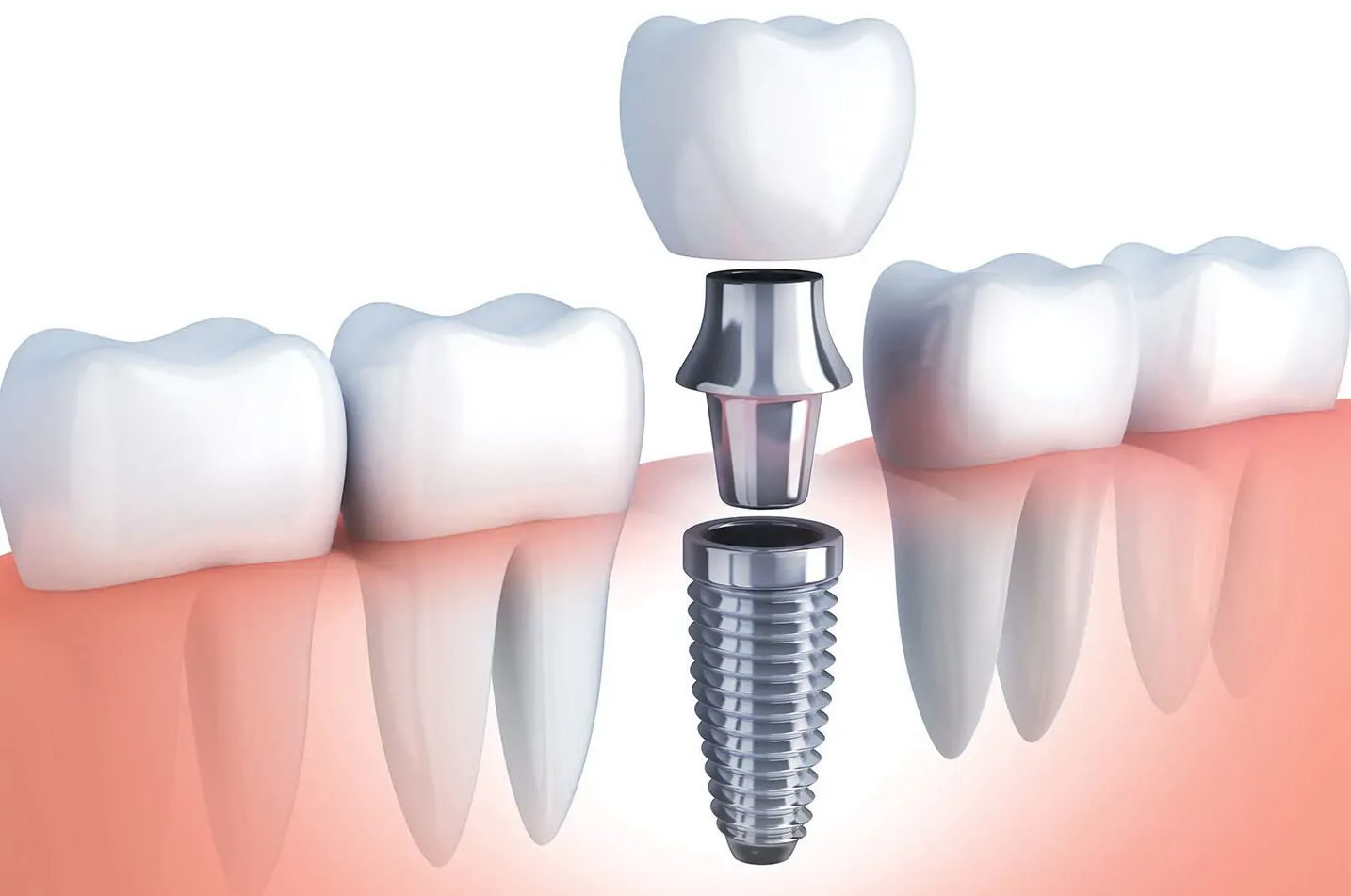Dental implantation is an effective and long-term solution used to replace lost teeth. The benefits of dental implants can be evaluated from various perspectives, and a number of important questions can be answered on this subject.
Benefits of Dental Implant
- Aesthetic and Natural Appearance: Dental implants offer a more natural appearance compared to other dental treatments. By achieving aesthetically pleasing results, a person’s smile can attain a healthier and more natural look.
- Functional Benefits: Dental implants restore chewing function by replacing the lost tooth. This enables the individual to chew comfortably, like with natural teeth, aiding in more effective chewing and digestion of food.
- Does Not Affect Other Teeth: Dental implants can be applied without causing harm to adjacent teeth. While other conventional dental treatments often require tooth reduction to provide support to neighboring teeth, dental implants are placed directly over the missing tooth without affecting adjacent teeth.
- Long-Lasting and Durable: Dental implants are generally long-lasting and can last a lifetime with proper care and hygiene. This demonstrates that implants are an excellent investment.
Why should I have a dental implant?
Getting a dental implant can enhance a person’s quality of life, in addition to its aesthetic and functional advantages. Replacing a lost tooth, restoring chewing ability, and improving one’s smile can boost overall confidence.
What should we pay attention to when choosing a dental implant?
Factors to be considered when choosing a dental implant are as follows:
- An experienced dentist should be chosen.
- The material and brand of the implant are important.
- Health conditions should be taken into consideration.
- The treatment process and recovery period should be explained.
Is it healthy to have implanted teeth?
Yes, getting a dental implant is healthy. When hygiene rules are followed during the procedure and proper care is taken, implant teeth provide a long-lasting and healthy solution.

How long does a dental implant last?
The lifespan of a dental implant can vary depending on several factors. However, dental implants generally provide a long-lasting solution when coupled with good care and regular check-ups. Some factors that can affect the lifespan of an implant include:
- Personal Care and Hygiene: It is important to maintain regular and effective oral hygiene for the longevity of implants. Daily oral care habits such as brushing, flossing, and mouthwash use can help the implant last longer.
- Health Condition: An individual’s overall health can affect the success and longevity of the implant. Particularly, having a healthy bone structure facilitates the stable placement of the implant.
- Dentist Experience: Choosing an experienced dentist during implant treatment ensures proper placement of the implant. The supervision and intervention of a specialist dentist can help in the early detection of potential issues.
- Material and Technology: The material used for the implant and the applied technology can also affect its lifespan. High-quality materials and up-to-date technologies are important for durability and longevity.
- Lifestyle Factors: Lifestyle factors such as smoking, excessive alcohol consumption, or teeth grinding can affect the longevity of the implant. These habits can harm the tissues surrounding the implant.
In general, with proper care and regular check-ups, dental implants can last a lifetime. However, each situation is individual, and it is important to consider factors that may affect the lifespan of the implant.
What are the implant risks?
Although dental implants are generally safe and successful treatment options, like any surgical procedure, implant treatment also carries certain risks. Here are the potential risks associated with dental implant placement:
- Infection: There is a risk of infection following implant surgery, typically due to inadequate oral hygiene during the healing process. If an infection develops in the tissues surrounding the implant, it can affect the success of the implant.
- Implant Loss: Implant loss may occur rarely due to rejection by the body or inadequate integration. This condition is often associated with improper placement of the implant, insufficient bone quality, or the patient’s health condition.
- Nerve damage: Although rare, nerve damage during implant surgery is possible. Nerve damage can lead to numbness, tingling, or sensory loss in the jaw area. This risk can be minimized with careful surgical techniques performed by an experienced dentist.
- Allergic Reactions: Allergic reactions to the materials used in implants can occur, albeit rarely. This is typically addressed by using biocompatible materials such as titanium, alloys, or ceramics for implants.
- Complications and Dysfunction: Some complications may arise following implant surgery, including improper integration of the implant, mismatch of the prosthetic placed on the implant, or adverse reactions of the surrounding tissues.
- Impact on Adjacent Teeth: There is a risk of damaging adjacent teeth during dental implant placement. This risk can be minimized with careful planning and execution during surgery.
Every patient is unique, and before undergoing implant treatment, potential risks and benefits should be thoroughly evaluated. A comprehensive examination and treatment planning by a skilled dentist are essential to minimize potential risks.
Sources:
- American Academy of Implant Dentistry (AAID)
- Academy of Osseointegration
- American Dental Association (ADA)
You can also read the following:


